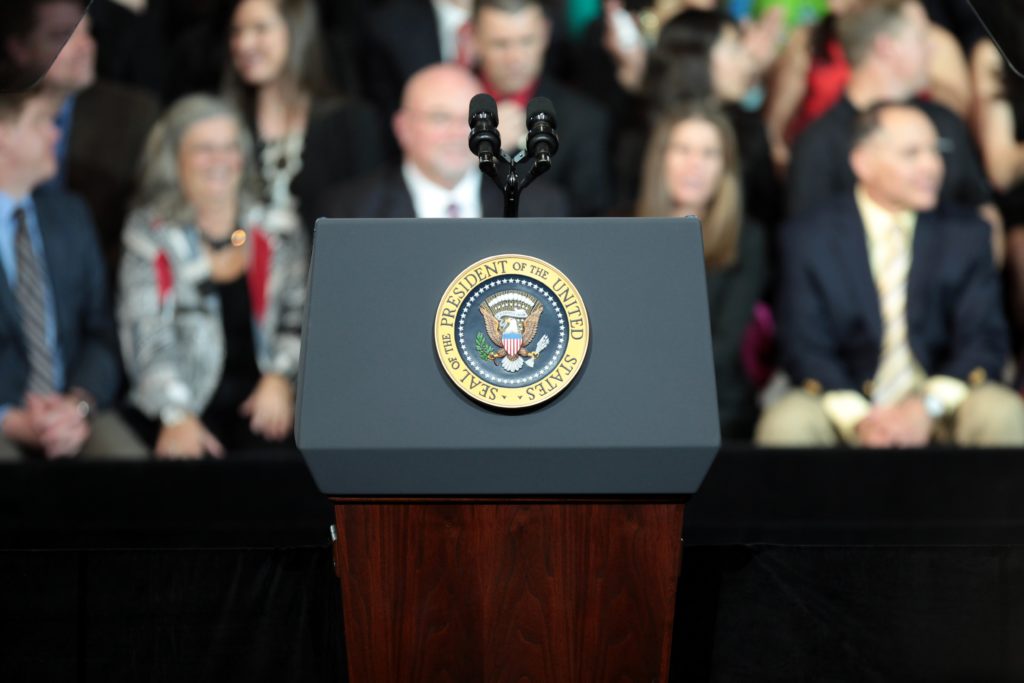The Peninsula
Another Way of Dealing with North Korea: Negotiation Without Engagement

By Mark Tokola
Winston Churchill said, “To jaw-jaw is always better than to war-war.” He was reported to have said this at a White House luncheon in 1954, so he by then had plenty of experience with both war and negotiation. This sentiment, or something like it, is what people have in mind when they urge engagement with North Korea. It would seem, therefore, like common sense that the Trump Administration should offer talks with Pyongyang to decrease tensions being caused by North Korea’s nuclear weapons program. However, as David Straub detailed in an excellent paper and December 2016 talk at KEI, it isn’t so simple.
I won’t rehearse Straub’s argument here; you really should read it for yourself. The two most frequently voiced objections to a strategy of engagement are: (1) We have already done that. In 1992, 1994 and 2005, North Korea agreed to abandon its nuclear weapons program following negotiations. There have been bilateral negotiations, multilateral negotiations, and signed documents. The long history of engagement and even agreement with North Korea has not stopped them from nuclear and missile development. To be fair, nor has isolation, although it seems clear that sanctions have slowed North Korea’s weapons development by making it more difficult for them to obtain materials, components, and foreign assistance; (2) Engagement would have to imagine a mutually acceptable outcome. With the United States and South Korea insisting on nothing short of denuclearization, and with North Korea enshrining the acquisition of nuclear weapons in its constitution and as a fundamental national objective, there would not appear to be much to talk about.
I would add a third problem with pursuing an engagement strategy with North Korea: Kim Jong-un appears unwilling or perhaps even unable to engage in international negotiations. He has rejected invitations to Beijing and Moscow and has never even left North Korea during the five years of his rule. His most significant diplomatic engagement has been a meeting in Pyongyang with former basketball player Dennis Rodman. Whether due to a feeling of political insecurity at home, fear of experiencing lèse-majesté abroad, or a single-minded focus on domestic rule, Kim Jong-un has shown no interest in diplomacy apart from threatening other countries with death and destruction. His ‘great ruler’ governing style makes it unlikely that he would entrust an envoy with any role other than that of being a parrot – a parrot who would get all of the blame and none of the credit for the outcome of the talks. This would hardly be an enviable diplomatic assignment.
How do we negotiate with a country with which we cannot engage? To paraphrase the old Zen koan, “What is the sound of one country negotiating?” The pattern up to now has been to react to North Korean nuclear and missile tests with additional sanctions. One alternative might be to change the model from ‘misbehavior-followed-by-punishment’ to ‘good behavior-followed-by-reward,’ but with the additional element of certain, negative consequences if there is further misbehavior.
The Trump Administration could make an announcement (following consultations with South Korea, Japan, China, and Russia, i.e. five of the six parties of the Six Party talks) along these lines:
“We are not making a diplomatic proposal today, we are simply stating a fact. If North Korea refrains from testing any nuclear devices or long-range missiles starting today, in six months we will drop sanctions on non-ferrous metals, and will increase the amount of coal which North Korea can export by fifty percent. If a year passes without testing, we will further ease sanctions and will consider economic assistance to North Korea. If, however, nuclear or missile testing takes place during the next six months, we will further reduce the amount of coal North Korea is allowed to export by fifty percent, and will add textiles to the list of sanctioned items. Our implementation of these steps is not dependent upon a reply from the North Korean government. We will act as we have described based upon their actions, not their words.”
An obvious objection to this proposal is that North Korea could use the time to continue improvements in its nuclear weaponry, just without the testing. It would also relieve North Korea of the pressure of sanctions without their having committed to anything. On the other hand, foregoing nuclear or missile testing would deprive North Korea of having a proven nuclear arsenal, an advantage for the United States, South Korea and their allies. The reduction of sanctions could be set on a long enough time scale to allow for a reduction of tensions over time – perhaps three to six years, perhaps longer, depending how they were calibrated. If the U.S. were able to reach an agreement in the UN Security Council, there would be nothing to restrain the UN from delaying the timetable, or introducing new sanctions, in the event of another sort of North Korean provocation, including a cyberattack as long as any agreement included the necessary provisions.
A wise, old-school American diplomat once observed, quoting Sun Tzu, that it is dangerous to back an adversary into a corner: “I would build my opponent a golden bridge over which to retreat.” One of the advantages of rewarding or punishing North Korea based on their actions rather than on their negotiating stance is that it would not require them to publicly disown their prior, loudly stated objectives.
Undertaking such a strategy, in public or in private, would only be a partial solution. It would not address issue such as verification, denuclearization, or other pressing problems such as North Korea’s crimes against humanity. It might, however, be a start.
Mark Tokola is the Vice President of the Korea Economic Institute of America. The views expressed here are his own.
Photo from Gage Skidmore’s photostream on flickr Creative Commons.
